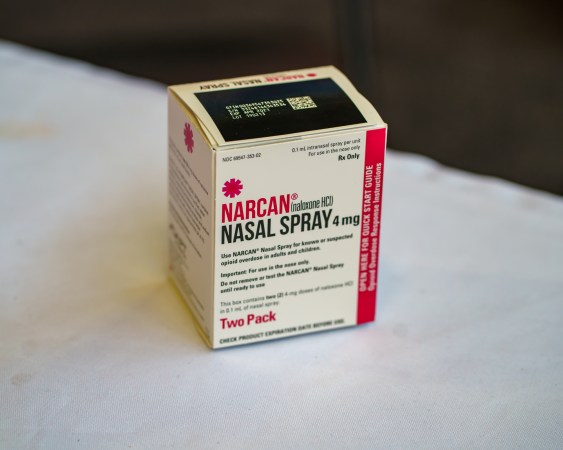

On April 7, US District Judge Matthew Kacsmaryk from Texas put the Food and Drug Administration’s (FDA) approval of the abortion pill mifepristone on hold. This drug is known to be safe when used properly, and has a death rate of only 0.0005 percent, according to the FDA. The medication has been FDA approved since 2000. The ruling could suspend the use of the most commonly used form of medication abortion in the United States, even in states with robust reproductive rights protections.
Kacsmaryk paused his ruling for seven days. This pause allows the federal government time to appeal the decision, an option that both the Justice Department and the drug manufacturer quickly said it would take. For now, the drug should remain readily available.
[Related: Abortion bans are impeding access to ulcer, arthritis, and cancer medications.]
At nearly the same time on the same day, US District Judge Thomas O. Rice, of Washington State by essentially ordering the opposite decision. Rice advised US authorities not to make any changes to mifepristone in at least 17 states where Democrats sued in a legal effort to protect the medication’s availability.
Mifepristone is the most widely used abortion medication in the United States. It works by blocking the pregnancy hormone progesterone, which makes the uterus unable to support a pregnancy and expels the uterus’ contents. It is the first pill that can be taken in a medication abortion. It is followed by another medication called misoprostol which can be obtained with a traditional prescription.
Kacsmaryk ruled in favor of the plaintiff in a 2022 lawsuit from a group of anti-abortion rights groups called the Alliance for Hippocratic Medicine who sued the FDA in 2022. The plaintiffs in the Texas case are also targeting misoprostol, which is used to treat multiple medical conditions including stomach ulcers.
In Kacsmaryk’s 67-page decision, he ruled that the FDA “improperly” approved the abortion pill mifepristone more than two decades ago. Kacsmaryk wrote that the FDA overstepped its authority in approving the drug partially by using a specialized review process reserved for drugs to treat “serious or life-threatening illnesses.”
FDA regulations state that pregnancy is a medical condition that can be serious and life threatening, but Kacsymaryk, who is not a scientist, argues it is a “natural process essential to perpetuating human life.” According to a report from the Centers for Disease Control and Prevention (CDC), the US had one of the worst rates of maternal mortality in the country’s history in 2021. The study found 32.9 maternal deaths per 100,000 live births, which is more than 10 times the estimated rate of other high income countries.
United States Health Secretary Xavier Becerra told CNN on Sunday that the ruling threatening the availability of the drug was “not America.” He did not rule out defying the judge’s order if necessary. “We want the courts to overturn this reckless decision,” Secretary Becerra said. “We want, yes, that women continue to have access to a drug that’s proven itself safe. Millions of women have used this drug around the world.”
[Related: What science tells us about abortion bans.]
Becerra added that Kacsmaryk’s order could have incredibly serious ramifications for the legality of any future or current FDA-approved drug.
Today, Democratic lawmakers Reps. Lizzie Fletcher of Texas and Pat Ryan of New York will introduce the Protecting Reproductive Freedom Act during a pro forma session of the House. The bill seeks to reaffirm the FDA’s final approval authority on medication abortion and continue a rule that allows providers to prescribe mifepristone via telehealth. “The Texas decision has nothing to do with science or medicine and everything to do with radical groups whose only goal is a national abortion ban,” Rep. Ryan told NBC News. “My priority is protecting abortion access for women in New York and across the country.”
“These are difficult days for Texas women, and once again Texas is at the epicenter of efforts to take away our freedom to make our own choices about our bodies, our families, and our futures and to deprive us of access to services, information, and care that enable us to do so” Rep. Fletcher said in a separate statement, “We will fight this ruling in the courts, and we must fight this assault on the health and freedom of American women in all the ways we can.”







